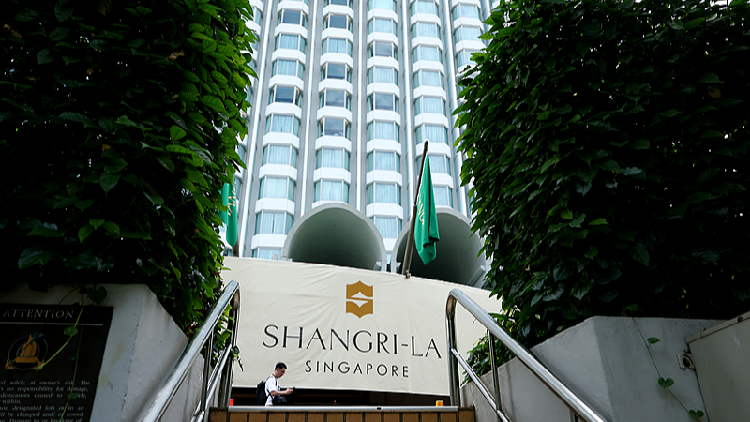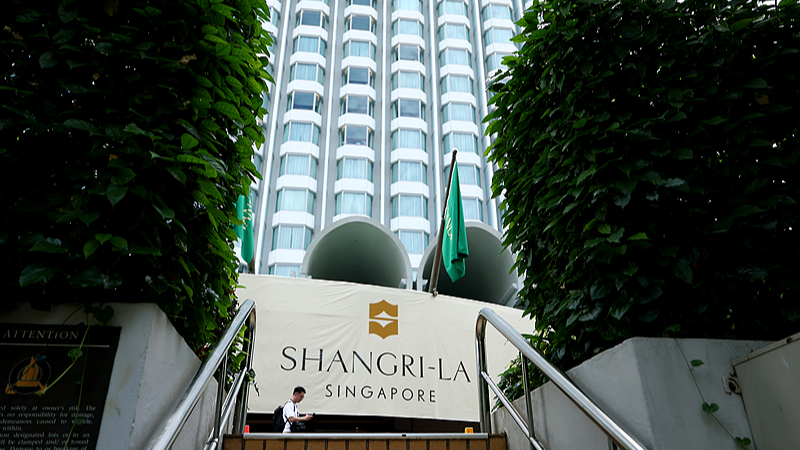Shangri-La Dialogue 2023: China Rejects Unilateralism and Military Bullying
China affirms commitment to a shared maritime future and regional security during Asia-Pacific security conference.


At the 22nd Shangri-La Dialogue held in Singapore, China's delegation reaffirmed its strong stance against unilateralism and bullying, emphasizing a commitment to fostering stability and cooperation in the Asia-Pacific region. During a well-attended session titled "Cooperative Maritime Security in the Asia-Pacific," Hu Gangfeng, vice president of the National Defense University of the Chinese People's Liberation Army, outlined Beijing's vision for regional security and development.
Hu stressed that China’s guiding principles—the three global initiatives on development, security, and civilization—will shape its approach moving forward. He emphasized the importance of building a maritime community with a shared future, stating that China is prepared to work collaboratively with its neighbors to ensure that the seas are "a sea of peace, friendship, and cooperation." Highlighting the need for multilateralism, Hu called for "sincere dialogue and consultation" as well as "equal exchanges and mutual learning" between nations.
The Shangri-La Dialogue, recognized as Asia's premier defense summit, drew more than 550 delegates from over 40 countries and regions this year. The event comes at a time of heightened geopolitical tension and widespread uncertainty about the future of international security systems. Against this backdrop, China's position has drawn significant attention, with regional security experts underscoring the pivotal role Beijing could play in easing tensions and promoting global stability.
China’s proactive efforts in international security governance have not gone unnoticed. In 2022, the country unveiled the Global Security Initiative, which by late 2024 had garnered support from 119 countries and organizations, and had been incorporated into 123 bilateral and multilateral documents. In April, China also introduced a new Asian security model focused on finding common ground, constructive dialogue, and shelving differences—a move widely interpreted as an attempt to promote inclusivity and prevent escalation in regional disputes.
A white paper released on May 12 further clarified China’s position, declaring that all nations deserve equal security interests and calling for the legitimate security concerns of every country to be considered fairly and resolved appropriately. The document underscores the principle that comprehensive security must be based on broad cooperation and mutual understanding.
Beyond military and diplomatic initiatives, China is also focusing on the connection between economic development and security. Officials argue that sustainable development is the cornerstone of lasting peace and stability. Regional leaders and analysts have taken note of China’s major contributions to economic infrastructure—through projects like the Belt and Road Initiative and the Asian Infrastructure Investment Bank—which they assert help promote prosperity and reinforce regional security architecture.
Singaporean ambassador-at-large Chan Heng Chee highlighted the critical importance of economic growth as a pillar of security, citing the benefits that Southeast Asia and the broader Asia-Pacific have experienced due to increased investment and cooperation with China. “China is building up the security of the region by contributing to its growth, institutionalization, and the strengthening of the countries' economies,” Chan said, adding that such efforts are highly valued by nations throughout the region.
As countries at the Shangri-La Dialogue continue to deliberate on the future of Asia-Pacific security, China’s advocacy for multilateral solutions and integrated economic strategies is likely to remain a focal point in discussions on maintaining peace and fostering stability in one of the world’s most dynamic regions.




